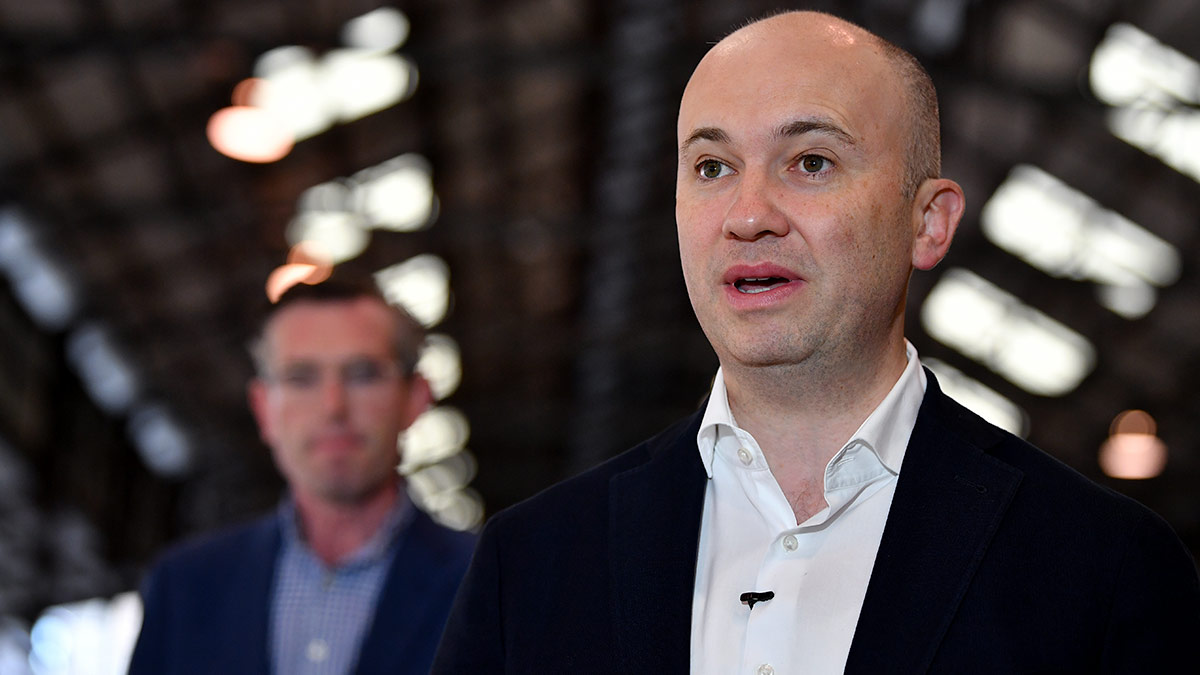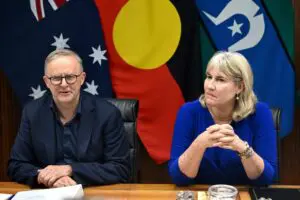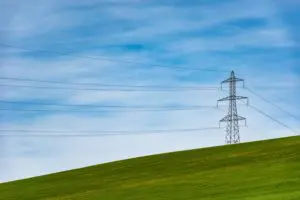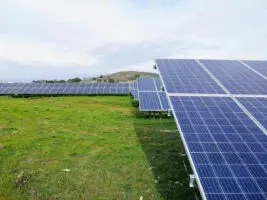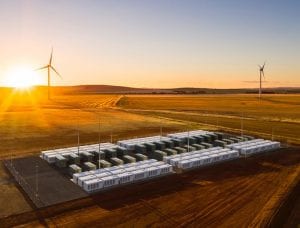New South Wales energy and environment minister Matt Kean has delivered a message to Australia’s political leaders – get on with the job of decarbonisation, or get out of the way.
Kean issued the warning in the opening plenary of the Better Futures Forum on Tuesday, delivering a not too subtle message for federal political leaders – including those of his own party – that voters should use their power to choose politicians who show leadership on climate change, and remove those responsible for delays.
The outspoken Kean, a cabinet member within the Liberal -led state government in New South Wales and a key leader within the party’s ‘moderate’ factions, called on voters to deliver a message to politicians failing to act on climate change.
“When we decide who we bank with, and when we decide how to vote at the ballot box, we need to send a message to all leaders in every part of our society, that failing to deliver on the promise of what we can be, is not an option,” said Kean, a leading moderate member of the Liberal-led state government in NSW.
“Complaining that it is all too hard is not a solution. Saying that it is up to others to come up with a plan is a complete cop out. The community expects our leaders to get on with it, or to get out of the way.”
The comments are a clear reference to the responses of both prime minister Scott Morrison and Nationals leader Barnaby Joyce, who both played down the need for Australia to ramp up action on climate change following the release of the latest authoritative update of climate change science by the Intergovernmental Panel on Climate Change (IPCC) last week.
The IPCC report warned that the world is already experiencing irreversible impacts of climate change caused by the ongoing use of fossil fuels and the world was on track to exceed 2 degrees of global warming unless rapid and significant reductions in greenhouse gas emissions can be achieved.
In response to the report, Morrison effectively laid blame on emerging economies, including China and India, suggesting that there was no point in introducing measures like a price on carbon emissions in countries like Australia unless developing countries commit to cutting their own emissions.
Likewise, when queried whether the federal Nationals would support a net-zero emissions targets for 2050, Joyce – who is the deputy prime minister and a member of the federal cabinet – complained that he had not been shown a plan for how such a target would be achieved.
Kean said that Australia had a natural competitive advantage when it came to access to clean energy resources and it made sense for Australia to establish itself as a clean energy leader, supporting the rest of the world to decarbonise.
“Australia should not be a climate laggard, we should be a climate leader because we can do what other countries can’t. Because here in Australia, we can protect our planet in ways that lift the living standards of all humanity,” Kean said.
“That is the challenge of our time. And I truly believe that the generation of people here today, the current custodians of our planet, will take it on and turn it into an opportunity to underwrite our prosperity, rebuild our economy, and remake our politics.
“New South Wales, in particular, has enormous opportunities to grow our economy as the world decarbonises. With some of the best renewable resources anywhere in the world, as the world decarbonises, we are not just a sunburnt country, we are a sun blessed country.”
“Our renewable energy resources can underwrite new industries in green hydrogen, and materials like green steel and aluminium. The reality is that as the world moves to decarbonise, our low cost clean electricity can be the foundation for our industry to win the 21st century,” Kean added.
Kean’s warning echoes the fears of many ‘moderate’ members of the Liberal and Nationals who worry their party’s reluctance to embrace climate action may make many of their seats vulnerable.
Former prime minister Tony Abbott was unseated from the Liberal party stronghold of Warringah at the 2019 federal election by independent candidate Zali Steggall, who had focused her campaign on support for stronger climate action.
Many independent candidates will likely seek to replicate the success of Steggall and others at the next federal election, seeking to exploit the Morrison government’s unwillingness to commit to stronger climate change policies, creating a new threat for incumbent Liberals in more moderate metropolitan seats.

